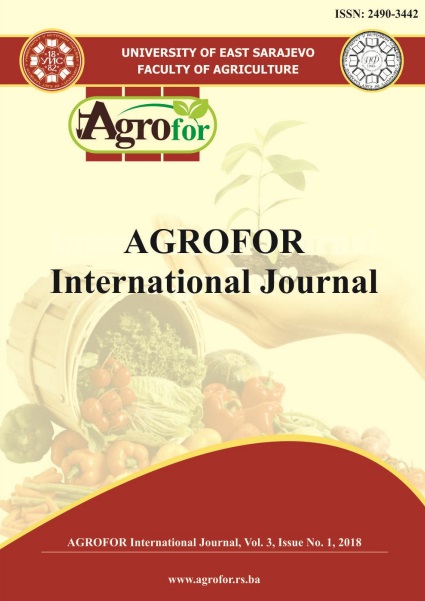APPLICATION OF MULTI CRITERIA DECISION TECHNIQUE TO DETERMINE THE BEST CHICKPEA CULTIVARS WITH HIGH ANTIOXIDANT POTENTIAL
DOI:
https://doi.org/10.7251/AGRENG1801027AAbstract
In this study, technique for order preference by similarity to ideal solution
(TOPSIS) analysis, which is multi criteria decision making method, was firstly
applied to rank the most suitable cultivars among 12 registered chickpeas for high
antioxidant potentials. Registered chickpea cultivars were grown in trial fields of
state research institute in 2015, Adana, Turkey. The cultivars were analyzed for the
criteria such as their water-soluble protein content (WSPC), total phenolic content
(TPC), free radical scavenging activity (FRSA) and iron chelating activity (ICA)
which were related to their antioxidant potentials. However, depending on each
criterion, the ranking of the cultivars was completely different so that TOPSIS
analysis was applied to the obtained data in six steps. Firstly, the decision matrix
was constructed and then each criterion was weighted as respectively 0.40, 0.30,
0.20, 0.10 for FRSA, TPC, ICA, and WSPC by the researchers. After the weighted
normalized decision matrix was constructed, the positive ideal and negative ideal
solutions were determined. Then the separation measures for each alternative were
calculated (Si* and Si- for the separation from positive and negative ideal
alternative, respectively). Finally, the relative closeness to ideal solution was
calculated (Ci*). The cultivar Seçkin with the highest Ci* value (0.776) was the
first rank and followed by Aydın, Azkan, and Çakır. This study showed the
usefulness of TOPSIS analysis in the multi criteria decision making process when
the presence of different parameters related to same property of sample set such as
antioxidant potential of chickpea cultivars.

